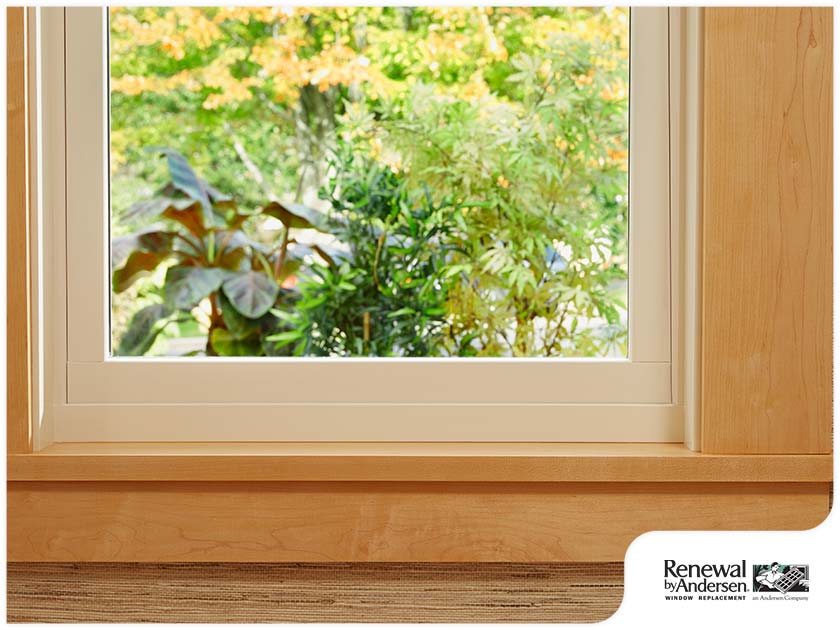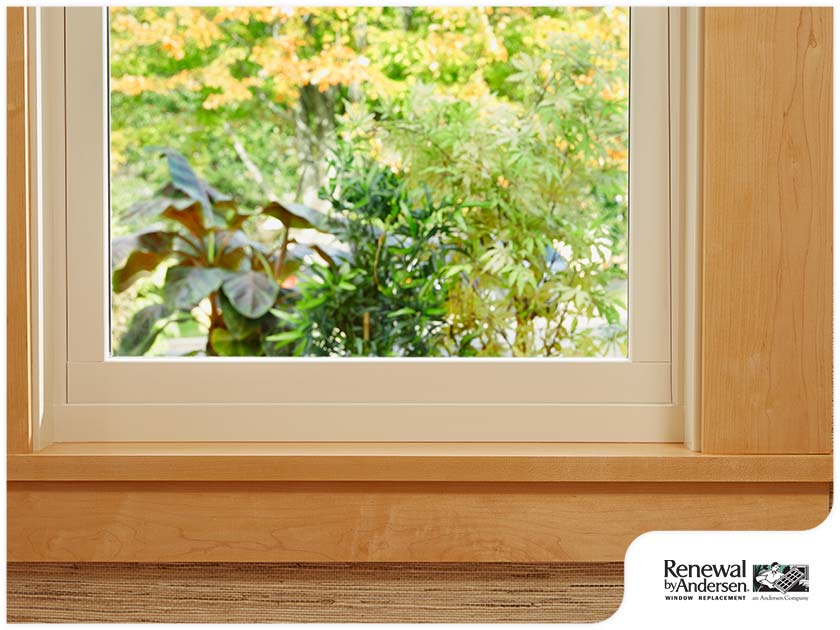MENU


Energy-efficient replacement windows are becoming a home improvement essential, thanks to their numerous benefits. But how do they exactly work?

The term “insulated glass” is a bit of a misnomer. It’s made of two glass panes that are separated by insulating materials. It does not have foam, fiberglass or conventional material in the glass panel itself. Instead, the space between the glass is a sealed vacuum. Without air molecules to conduct heat through, the airspace becomes the insulating layer.
Many windows replacement companies, including Renewal by Andersen®, offer insulating gas fills for enhancing insulated glass. The aforementioned airspace between glass panes can be filled at the factory with an inert gas, usually a blend of krypton and argon, to further slow down thermal transfer and enhance insulation. This gas is odorless, colorless and non-toxic, and doesn’t have any effect on humans in case of a leak.
The term “Low-E” stands for low-emittance or emissivity. It’s used to describe a type of window glass that has been treated with special coatings that selectively blocks ultraviolet (UV) rays and solar heat while allowing visible light like it was clear glass. You can let direct sunlight shine through this type of glass and not worry about faded fabrics or your indoor spaces getting too warm. Low-E glass has proven to be so effective that our replacement windows are equipped with High Performance™ Low-E4® glass as a standard component.
U-factor and R-value both measure insulation in replacement windows, entry doors and skylights. You’ve probably already seen U-factor (or U-value) on energy ratings labels or those white labels affixed on new replacement windows. It measures the rate of heat transfer through a product: a lower value means better insulation.
In other literature, insulation may be measured as R-value. It measures how well a product resists heat transfer; therefore, higher values are ideal. A replacement window with a low U-factor will have a correspondingly high R-value.
Renewal by Andersen of San Francisco is your leading provider of energy-efficient replacement windows. Give us a call at (866) 609-5033, or fill out our contact form. We serve customers in San Francisco, CA, and nearby areas.